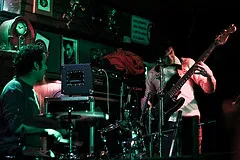What Happens when Personalization, Travel and Innovation Come Together? Find out with Anshuman Bapna

Needless to mention that the travel industry in India is poised for an exponential growth. The market in India is estimated at USD 22 billion and mutilple factors like online travel, bookings, tourism, infrastructure etc. will play a crucial role.
Innovation will be one of the fundamental determinants of growth in this space and entrepreneurs have started embracing this zealously. One venture which is pushing the boundaries and creating a unique travel business is mygola.com.
In an interview with one of the most passionate entrepreneurs I’ve ever come across, Anshuman, CEO & Co-Founder, mygola.com, tells YourStory about his journey from starting up to getting funded, planning 25000 trips across a 100 countries and more.
mygola.com - the Idea and Business
So in one sentence, mygola is a travel planning service where you get a personal human guide to do all the online research and bookings for your trip. The general hypothesis of what we’re doing is that really hard problems can be solved by a combination of 90% technology and 10% human judgment, and travel planning is one of them. We started in 2010 and although we’re technically a US company with an Indian subsidiary, we’ve always had employees only here in India. I used to work at Google in NY before this and manage their largest partnerships especially in travel and that’s where the idea came from.
Originally, I thought that travel planning is a fundamentally complex problem; it hasn’t been solved for a very long time on the internet, which is surprising because not only is travel one of the oldest categories on the Internet, it is also the biggest money maker. And a lot of people have tried to solve it; smarter people with much more money than us, but have failed. So, initially, my thinking was that there are all these interesting innovations happening in different parts of the travel industry and if we have a technology layer on top of them and integrate them so that we get the best of hotel recommendations from one place and flight recommendations from someone else and so on, then that is what people should be looking for. But when I created the prototype and showed it to people the feedback was that it was too complex. They came back and said, “Why can’t I have the experience that I have with a friend where I simply ask a question and get a personalized and detailed answer in return?”
Personalization and Travel

Personalization is a very abused word on the Internet. Everyone talks about personalization and the fact that if you log in to a site and it says “Hi Meghna” it is considered as personalization. But that’s not really personalization. What we realized we were looking for was the high touch in personalization that only a human can provide but we were also pretty clear that humans should be powered by the web. What we were not looking for is the travel agent of the 20th century who got commissions from 20 hotels in Paris that they would somehow pass on to you. So we needed someone who used the web’s powerfulness but at the same time could personalize the entire experience. So if someone said, “I’m going to be in Amsterdam but I hate Van Gogh,” then that person would know what that means and there’s no engine on the web that can understand that.
We were going do 2 things- one was build a technology platform that will basically aggregate tons of data from the web and we’ve done a lot of work there and that’s the core IP of the company. The second thing we’ve done is that our hypothesis is if you find and give the right tools to people who are travel enthusiasts then they can become definition experts for any place. We actually recruit such people online and they go through online tests and training and we select 10% of the people who give tests. We have 4000 such people now, who use our tools to do all the research.
I am looking forward to my next trip. I go to mygola.com, what can I expect from you?
So first, we try and catch you and chat because it’s very important for us to get more details. If you’re going to Amsterdam we need to know if you’re an 18 or 80 year old. As soon as that question has enough data, we open it up and that immediately sends a text message to our 4000 guys. We have a routing mechanism that makes sure that someone who has planned a trip to the same place earlier gets more priority and then we use tools to do research and depending on how qualified the planner is, in terms of how many questions he/she answered before, he/she can go and post an answer directly. If not found qualified enough, we have a quality assurance process in between where someone else monitors the answer and makes sure its high quality before it is published. So it’s a very involved process. I can proudly say that we are one of the 1st few companies who doing so much on technology and human operations all at the same time.
Team, Building a Team and the Magic of Staying together
We’re about 18 people currently; 8 in engineering and the rest in content & operations. I had known my cofounder for a very long time. He was 2 years junior to me when we were at IIT Bombay in the same dept. and we had kept in touch. Getting the rest of the team together was a challenge. It took almost 4 months for us to get the first engineer on board until when I was handling the engineering part as well.
Visibility

Visibility was never hard because we’ve always had a good story to tell. From a press stand point, it’s never been hard. I had started my first company when I was still at undergrad, and at that time also we were on NY times, CNN, BBC and a bunch of other places. So having press is not the hard part; the hard part is distribution; where you can get the word out through press but that is very ephemeral - you’ll get a mention and suddenly traffic goes spiking and that’s about it. The harder part is on an ongoing basis, where are your customers coming from?
Are they coming cheaply enough with the right intent?
Are they converting properly not? And that’s the hard thing for us.
So, there are a couple of things. One is SEO. If you think about what we do every time we answer a question, we’re basically publishing that answer on the web and most of these questions are long-tailed very niche very specific kind of questions with great SEO value. So we get a vast majority of our traffic through Google organic results and we haven’t spent anything on marketing yet. We also use social channels in a very interesting way. In fact, twitter is one of the channels where we get tons of traffic from.
Funding
We’ve raised a million dollars announced in December 2011 from a Valley based fund called Blumberg Capital, Dave McClure of 500 startups and a bunch of colleagues from Stanford and Google.
Revenue Model
We have 3 ways of making money. One is advertising that we haven’t turned on yet because I don’t think we get that kind of volume to make it really interesting. The other 2 sources are- subscriptions and booking. For a subscription, a user needs to sign up and pay 99$ for a full year for unlimited travel planning or pay 30$ per trip. A trip is what the user says the trip is – it’s not limited to one place only. We do bookings as well, so the value proposition for the user is a one stop shop. We don’t charge for the bookings though, we receive commissions from hotels, etc.
Future and Expansion Plans
In terms of people, we might hire 1 or 2 people especially in marketing. The vision is ultimately to have tens of

millions of travelers on one side and literally 100000 guys on the other side. So that’s the scale we want to reach. We’re solving a fundamental problem, not a niche one.
From a product stand point the one thing that we haven’t figured out yet is mobile. At some level mobile and travel are fundamentally connected to each other but at the same time I would go and argue that not a single company has gotten mobile right in travel. Because people haven’t really figured out what the best use-case is that can be fulfilled at scale. Right now, what people do is they have content that they package as an app and throw it out there and say, “Look I have no idea what to do with the mobile ‘use-case’ but just like the way you carried my XYZ guide, I’m assuming you’ll carry my XYZ app.” So mobile is something we’re working on.
Challenges
One was latency. Today is the age of the real time web. You do something and you expect instant gratification and here we were building a service where you would not get anything back for many hours. So the question was will people pocket that? Well, turns out people do travel planning many many weeks in advance. We did a bunch of customer interviews and we asked them if latency is an issue and we found that actually, when you start planning, you think of a place and the nothing happens for the next 3 weeks. We’re collapsing those 3 weeks of indecision to 24hrs of real data. So latency is fine. In terms of trust, the credibility issue is something that worried us a lot. So every time I describe the idea to someone and if they haven’t used the service, they come back and say “Hey, who is this guy planning my trip to Amsterdam?” And when I tell them the guy himself has never been to Amsterdam, they say, “so in that case it doesn’t work. It’s going to be a goof up. ” But turns out, every single one of our travelers has never had a problem with that. If you look at our Twitter favorites feed, you see how ecstatic they are. The perception is actually a real one but basically we are complementing that by what we do now - if we’re planning a trip to Amsterdam, we recommend cafes/hotels etc. then we reach out to locals of Amsterdam and send them those recommendations and say, “What do you think? Does this make sense for someone who is traveling with a kid?” And they give us their feedback. These are more than reviews. This is actually someone sitting in Amsterdam answering your question. And that’s what the web allows; we’re big believers in the power of the web.
As another example, I was in Austin last month and we launched an app there which is called mygola local as an experiment. We reached out to locals living in Austin and asked them if they would you be ok if you received a phone call from a tourist who is visiting Austin. Their number would not be disclosed, the tourist’s number would not be disclosed either and typically, they’ll ask questions around nightlife, transportation, etc. We saw that a lot of people signed up and people who used the service were thrilled. And, here again you will see the power of the web.
Where, according to you, is the travel space headed?
I was in a conference where there was this panel discussion on the trends in travel. So, I asked people there about their thoughts on customer dissatisfaction, when we know for a fact that it is legendary how brand disloyal customers are in travel. Even if I spend USD 50000 at Expedia, I wouldn’t bat an eyelid to pay 5 dollars on a not-so-known site. Clearly, its one of the major factors. But, what I found was that the panelists are not worried about that. They were like, “Yea sure. What I’m worried about is supplier, etc.” which are business-model specific challenges. My feeling is that a Google or an Apple who has no stake in the travel industry will come in from the user standpoint and completely disrupt it. Travel companies have been very non user-centric, making it possible for the likes of Google/Apple to take over completely. Well, looks like Mygola will certainly give them competition then!
Planning your next vacation soon? Try not to miss the mygola.com experience and send us your feedback!







